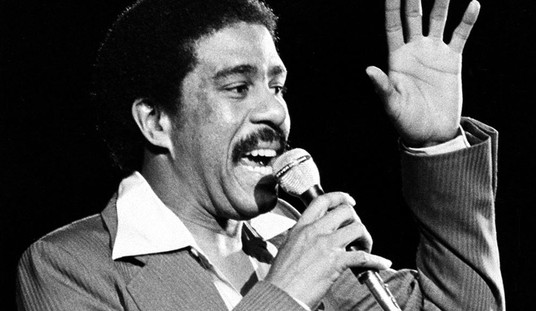Extended jobless benefits ran out on Saturday for 1.3 million of the long-term unemployed, and Democrats are looking to make political hay out of the issue.
Democrats and some Republicans are working on a three-month extension of benefits that would be the first order of business when Congress returns in January. The bill would add $6 billion to the deficit unless offset by spending cuts elsewhere.
The fate of the bill is uncertain in the House. Speaker Boehner hasn’t said he would oppose an extension, but it’s probable that a majority of Republicans would not vote for one unless there were offsets included in the bill.
Meanwhile, House Minority Leader Nancy Pelosi (D-Calif.) ratcheted up pressure on Republicans wary of another extension. In a statement issued Friday, she called the pending expiration “immoral,” and blamed GOP lawmakers for allowing it to happen.
“Starting tomorrow, too many American families will face the New Year with uncertainty, insecurity, and instability as a result of congressional Republicans’ refusal to extend critical unemployment insurance,” she said. “The first item on Congress’ agenda in the New Year must be an extension of unemployment insurance. That must be our priority on day one.”
House Democrats cried foul when the two-year budget deal was unveiled without an extension included, but many ultimately supported the package. Senate Democrats and the White House also backed the budget, vowing to address the unemployment issue soon but separately.
Democrats have buttressed their arguments with polling that shows steady public support for another extension and that Republicans could pay at the polls for opposing it. A poll from left-leaning Public Policy Polling (PPP) released earlier this week found that in four key swing districts, as well as the home district of Speaker John Boehner (R-Ohio), voters support an extension by 63 to 38 percent.
Democrats are also working to play up the impact back home on local media, highlighting how many people in their hometowns could be losing assistance.
“When the American people get involved and speak out, we are going to win this fight, and I believe that that is what’s going to happen,” said Sen. Bernie Sanders (I-Vt.), a liberal who caucuses with Democrats, on MSNBC this week.
Some Republicans, including Sen. Rand Paul (R-Ky.), have said they would oppose another extension. They argue that policymakers should be focused on creating more jobs rather than providing more assistance, especially as the economy continues to recover.
And other GOP lawmakers have remained noncommittal on the idea of an extension, but are clearly concerned about the cost. Boehner and other Republicans have not said explicitly that they would oppose renewing the benefits, but, at the same time, they want to see the costs offset by spending cuts elsewhere.
Democrats rebut that demand by arguing the extension of benefits is actually an economic boon. Pelosi and others point to analysis that shows an extension would allow the unemployed to continue pumping money into the economy, driving economic growth and job creation.
The problem for Republicans is that they are probably right on policy but wrong on the politics. Of course it’s better to encourage actual job creation. But what about the claim — one trotted out every time extended unemployment benefits are being debated — that benefits to the unemployed grow the economy?
Politifact looked into this claim and found questionable justification for it:
For one, there is considerable question among academics about the accuracy of the unemployment benefits’ “multiplier effects.” Robert Barro, a Harvard economist, pointed out that before spending on unemployment benefits goes up, the GDP goes down, which makes it difficult to come up with a “serious estimate” of the impact of unemployment benefits. Lawrence Katz, also from Harvard, said that he has “many qualms with these standard macro forecasting models.” Still, Katz also pointed out that the current models are “the best we have right now to make such forecasts.” Alan Reynolds, an economist from the libertarian-leaning CATO Institute, wrote in a January 29, 2010 blog post that Zandi’s econometric model relies on assumptions that are contradicted by contemporary academic research.
There are also some researchers who maintain that not only does increased spending on unemployment provides minimal economic boost, but also that it may decrease output in the long run, in part because the government will have to recoup money paid out in benefits through increased taxes. In a November 2008 report, scholars Karen Campbell and James Sherk from the conservative Heritage Foundation argue that existing studies on the subject are flawed, because they do not take into account that unemployment insurance reduces workers’ incentives to work. The pro-benefits studies also assume that every dollar of spending funds new consumption, they said. Many studies since the 1970s “have concluded that unemployment insurance plays at best a small role in stabilizing the economy,” the report argued. Campbell added, however, that though she does not believe that economic stimulus is a good argument for extending benefits, welfare arguments could be made for doing so.
The site rates the claim “half true,” which is generous considering the fact that academic economists are divided over whether the studies reveal any meaningful data.
Some Republicans may believe that extending jobless benefits will keep the long-term unemployed from taking jobs they would be forced to take if they weren’t getting the money. It’s impossible to quantify that notion, and anecdotal evidence suggests that the long-term unemployed — mostly older workers who are suffering from age discrimination by employers — wouldn’t be able to find a job with or without the benefits.
It’s hard to see how a three-month extension will help the situation being faced by the long-term unemployed. The economy isn’t going to magically improve in the next few months, leading to a flood of pent-up demand for workers who haven’t been employed for years. If the extension passes — by no means certain — we will back to where we are now in 90 days, making the same arguments while more than a million workers languish in unemployment.
Eventually, we may come to see those over 50 who are currently unemployed for more than three years as being “lost” in a changing economy. A sad testament to the failed economic policies of a failed president.










Join the conversation as a VIP Member